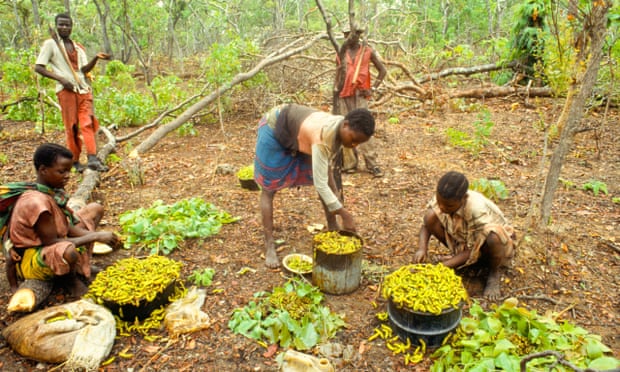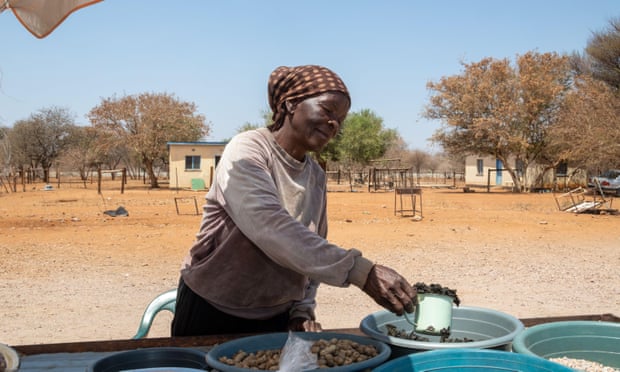UK aid spending is encouraging hunger-stricken Africans to eat insects, with projects aiming to develop the practice in the Democratic Republic of the Congo and Zimbabwe.
Edible insects have long been touted as a resource-efficient source of protein, requiring less land and water than conventional livestock. However, taste and cultural resistance have proved to be stumbling blocks in extending the practice in many parts of the world.
In a move to realise the substantial on-paper benefits of insect-eating, a £50,000 UK aid project in the DRC is putting African caterpillars, migratory locusts and black soldier flies on the menu.
The initiative is being spearheaded in the North and South Kivu provinces of the DRC, where cattle farming is one of the few ways to make a living for rural inhabitants. But as the population in these regions grows, space for animal husbandry is dwindling and beef farming is putting a strain on water supplies.
Twenty-three species of insect are already consumed in the South Kivu region, although the Congolese do not usually farm them, instead opportunistically gathering them depending on the season. Edible insects commonly eaten in the region include the African palm weevil, the litter beetle, termites and crickets.

The project is listed on the Foreign, Commonwealth and Development Office’s development tracker website as seeking “to promote the production of insects for human food and for use in the manufacture of animal feeds”. The initiative is said to run from March to December 2022 with funds provided by the Catholic Agency for Overseas Development (Cafod), a charity in England and Wales. Cafod did not respond to a Guardian inquiry about how it intended to use the money. [However, after publication Cafod said it was “completely wrong to claim the programme is encouraging people to eat insects” and that this was a local project to grow insects to feed fish, ensuring they would be more protein-rich when consumed.]

Meanwhile, in Zimbabwe, another development project is under way to use mopane worms in porridge served in schools. The slimy green caterpillars, which turn into emperor moths, are already commonly picked for consumption from vegetation during the rainy seasons in rural parts of Zimbabwe.
With £300,000 from the aid budget, officials are planning to feed poor children aged seven to 11 in the southern town of Gwanda and in the capital, Harare, a bug-laced gruel, which, they say, has the benefits of being rich in crucial vitamins and minerals, including phosphorus, potassium, iron, copper, zinc, manganese, sodium, vitamins B1 and B2, and niacin.
The project’s lead, Dr Alberto Fiore, a professor of food chemistry and technology at Abertay University in Dundee, said Zimbabweans rely heavily on maize, which is low in protein, essential minerals, amino acids and fatty acids.




